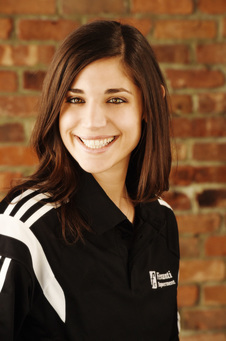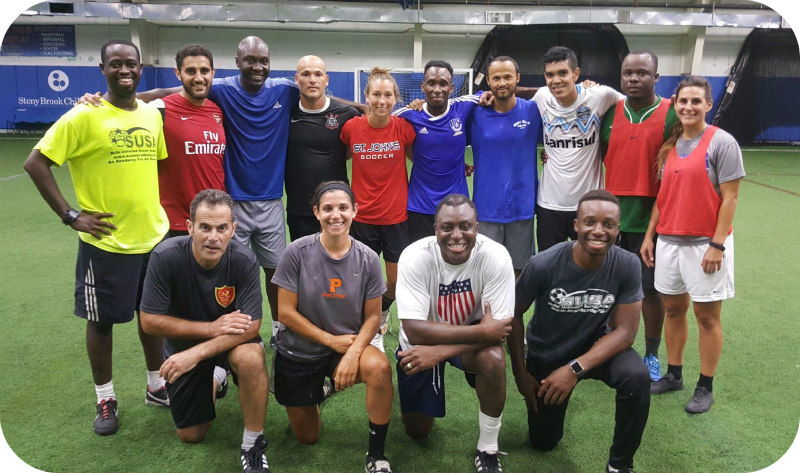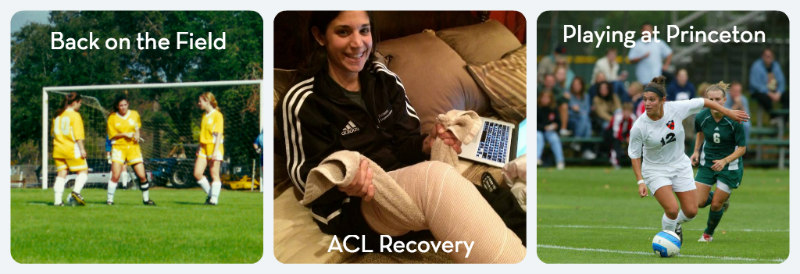Guest Author: Amanda Ferranti
 Amanda Ferranti is the director and founder of Ferranti Empowerment where she provides mental skills consulting for youth athletes, teams, and coaches. Amanda has an M.A. in Sport and Exercise Psychology, a B.A. in Psychology from Princeton University. Amanda skillfully develops mental toughness in youth athletes with her innovation and unique knowledge-base. She is a Certified Consultant by the Association for Applied Sport Psychology and contributes to the growing literature on mental skills training and performance enhancement.
Amanda Ferranti is the director and founder of Ferranti Empowerment where she provides mental skills consulting for youth athletes, teams, and coaches. Amanda has an M.A. in Sport and Exercise Psychology, a B.A. in Psychology from Princeton University. Amanda skillfully develops mental toughness in youth athletes with her innovation and unique knowledge-base. She is a Certified Consultant by the Association for Applied Sport Psychology and contributes to the growing literature on mental skills training and performance enhancement.
She has achieved a great deal of athletic success herself, having played soccer for HBC Fury (7 x State Champions, 3x Regional Champions, 3x National Finalists), Princeton University (Ivy League Champions, NCAA Final Four semi-finalist), and the Long Island Rough Riders (Northeast Division Champions). Amanda also has a diverse background competing in multiple sports, including swim, basketball, lacrosse, and dance.
Mental Skills: The Missing Piece of ACL Recovery
Love of the Game
For some people sports are a hobby. For me, soccer is more. I began playing at 3 years old and immediately fell in love. At the start of my journey I was unclear of what connected me to the game. As I look back, the game brought me pure joy that I never experienced elsewhere. The game grew to be my life, my love, and my passion – captivating my desires for physical challenge, competition, and most importantly creativity, which I consider to be the soul of the game.
My love for soccer propelled me in my journey to play for teams at the Premier Youth, ODP, Region I, NCAA Division I, and Semi-Professional levels. Within these environments I competed in 5 National Championships, received several individual honors, and made lifelong friends. Yet, in all of my experiences of success, the most memorable and impactful moment was when I was diagnosed with a torn ACL and sentenced to a minimum of 6 months separated from the thing I loved most in life.

My Torn ACL, Reconstruction & Doubts
As you can imagine, a serious injury like a torn ACL devastated me in ways that I did not know possible. I was just 15 years old at the time of my first ACL reconstruction – a critical age for physical and social development, and more importantly (at the time), college recruiting. I questioned whether the new me – Amanda with a torn ACL – was the same player with the same skills and the same spirit as I had before the injury.
I had so many fears and doubts and wondered, Am I fast anymore? Who have I become? Will I achieve my goals? The doubts swirled in my mind as I questioned my previously strong identity, self-worth, and confidence on and off the field.
The Missing Piece of ACL Recovery
However, I was resilient. Thanks to the support of my family, friends and teammates, I attacked the physical challenge of recovery as I would a soccer practice. That made the physical part of recovery easy. It was the type of work I was most familiar with, it required hustle and love of the game. I had that. Over the course of a year, I made it back to the field and successfully got recruited to play soccer at Princeton University.
However, as high school ended and even through college, I struggled to fully regain my confidence & self-esteem I had prior to my injury. Looking back, I can see that where I lacked was the mental component of recovery. In fact, at Princeton, my battle to reclaim my self-esteem and confidence kept me from fulfilling my potential on the field. The challenges I faced with the mental side of college soccer is a large part of what inspired me to pursue my education & career in mental skills. Specifically, I was drawn to the intricacies of how social and emotional affect influence physical performance.
Mental Skills for ACL Recovery
My desire to become a Certified Mental Skills Consultant was born out of my desire to help young players implement the mental skills that I wish I had access to during my ACL recovery. There is research that supports my experience that emotional recovery is one of the best ways to regain confidence after an injury.
As I studied mental consulting I was compelled to prove that I could master the skills that I teach, which is why 3 years after college I decided to play semi-professional soccer with the Long Island (NY) Rough Riders. Performing at the very top of my game I never imagined that it would happen again – in the second game of my 2014 season, at 28 years old, I tore my other ACL. In the days and weeks that followed, I faced a very humbling reality that my career in competitive soccer had come to an end.

The Key to Mental Recovery from a Torn ACL
I was absolutely devastated after my second ACL tear. This time there was no team to work back to and no goal of being recruited – it was the end and it wasn’t by choice. The physical, social, and emotional pain was just the same, if not worse. New doubts and fears emerged this time. Do I walk away entirely? Who would I be then?
My attachment to the game won out. I enthusiastically approached my recovery as an opportunity to my strategies for emotional rehab in conjunction with my physical recovery. Specifically, I worked really hard to apply multiple mental skills including:
- Emotional Awareness & Management: Keeping tabs on the daily ups and downs.
- Process Orientation: Taking a growth mindset to the process of recovery. Specifically organizing thoughts and all aspects of recovery.
- Ownership & Responsibility: Allowed me to create and focus on my new goals and how I could contribute to my recovery.
Easy enough to list, but the critical component to executing these skills was my commitment to the process of journaling – which I did throughout an entire year of my recovery.
ACL Recovery Journal
My year long experience of journaling had a tremendous impact on my emotional rehab. I credit the process of organizing my thoughts through writing and implementing the strategies listed above with my ability to regain confidence and return to play as if nothing happened.
In fact, I feel more discomfort in my first ACL reconstruction, which convinces me even more of the profound impact that emotional rehab can have on a quick, confident, and strong return to play (Crossman, 1997).
I’m so passionate about journaling as the key to recovery from my ACL injuries that I’m committed to creating a journaling resource for today’s girls that are struggling to recover from their first, second or third ACL injury.
To receive updates and learn more about accessing my ACL Recovery Journal created specifically for soccer girls, click the email button below.
[ninja_forms_modal_form id=86 image_link=”https://berkshiresocceracademy.com/wp-content/uploads/2013/11/Learn-More.png”]
Forever, the Love of the Game
Today I play nearly every day of the week with a group of adult competitive men and I never worry about my knee, nor do I feel pain or weakness.
Why all this work and interest in staying in the game? I no longer have a college to get recruited to, I don’t have a pro team to play for, I don’t have a championship to win or a team to support – it’s just me and the game that I love.
I consider myself lucky to have this relationship with the game, but it’s something I’ve worked at too. The relationship to the sport and all that it brings is what makes me so passionate about sharing my story and creating an ACL Recovery Journal. It’s a tragedy when girls leave soccer because of an injury like an ACL tear. That’s why I’m committed to helping girls maintain and enhance their love of the game, even in the face of adversity as they recover from an ACL tear.
Citations
1. Powell JW, Barber-Foss KD. Injury patterns in Selected High School Sports: A Review of the 1995-1997 Seasons. Journal of Athletic Training. 1999;34(3):277-284.
2. Majewski M, Habelt S, Steinbrück K. Epidemiology of Athletic Knee Injuries: A 10-year Study. Knee. 2006(13):184-188.
3. Crossman, J. (1997). Psychological Rehabilitation from Sports Injuries. Sports Medicine, 23(5), 333-39.





